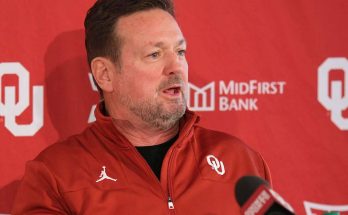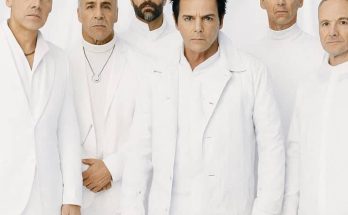Legendary soccer commentator Ray Hudson, with a voice as vibrant and unforgettable as his metaphors, has revealed that he is stepping away from broadcasting at age 70 in what he describes as the “most difficult decision” of his professional life. Announcing his retirement via social media on September 9, 2025, Hudson bid farewell to long‑time roles with CBS Sports and SiriusXM FC Radio, offering a heartfelt message to viewers, listeners, and colleagues alike. In his own words: “Very sad today, I retire from @CBSSports & @SiriusXM FC. Thank you all for sharing so many magesteeerial memories, wherein the beautiful game & players, beguiled & bewildered us. Sincere thanks to everyone I worked with; you inspired me. To everyone out there, I love you & I’ll miss you.” He added that the choice was guided by deeply personal considerations, saying, “It is the most difficult decision I have ever had to make in my professional life,” and stressing that walking away from something he loves broke his heart, but was ultimately the right choice for himself and his wife Joan. He admitted that over recent months he’d wavered several times before arriving at his decision
Reflecting on a career spanning decades, it’s clear Hudson’s presence has left an indelible mark on American—and indeed global—soccer fandom. His journey from player to coach to broadcaster reveals both the arc of his love affair with the sport and the evolution of the game’s media coverage in the United States.
Born in Gateshead, England in March 1955, Ray Hudson’s early footballing promise emerged during his time with Newcastle United, where he earned the nickname “Rocky.” He made 25 league appearances from 1974 to 1977 before venturing stateside on loan with the Fort Lauderdale Strikers—a move that would shape his life By 1977, at age 22, he had been loaned to Fort Lauderdale, where he swiftly became captivated by the “Emerald City” of American soccer—a sensation he described as positively otherworldly
Hudson quickly became a fixture in the North American Soccer League, alongside legends such as Gordon Banks, Teófilo Cubillas, and Gerd Müller. One of his proudest early moments was playing before over 77,000 fans at Giants Stadium during a match against Pelé’s New York Cosmos. Reflecting on that era, he said it felt like a cosmic launchpad, a shooting star of sports that was breathtaking while it lasted
After retiring from playing in the early 1990s, Hudson parlayed his on‑field charisma into coaching roles, including a stint with the Miami Fusion and later D.C. United. His arrival at the Fusion coincided with a remarkable run in the 2000 U.S. Open Cup, managing the team to the final and showcasing his fiery, passionate leadership that earned the admiration of players and fans alike
Yet it would be behind the microphone—as commentator, analyst, and storyteller—where Ray Hudson truly became an American soccer institution. Starting with GolTV in the mid-2000s, Hudson became famous for his explosive, metaphor-laden commentary. A goal wasn’t just beautiful—it was “sweeter than a mother’s kiss at bedtime,” “cool as Jimi Hendrix at Woodstock,” and ultimately, “magisterial.” His flair for flamboyant language earned him a cult following of fans who saved compilations of his iconic lines
In 2012, he joined SiriusXM FC 157 as lead host of “The Football Show,” where his energetic monologues and inimitable quips became the daily highlight for listenersHis talent for lavishing emotion and explosive imagery around each moment in the game earned him comparisons to a “verbal gymnast,” his style as unique and poetic as it was electrifying
Meanwhile, Hudson expanded his TV presence by joining beIN Sports to call LaLiga matches. For nearly a decade, his signature exuberance and vivid exclamations, especially around Lionel Messi’s brilliance, became synonymous with Spanish football for American viewers
In September 2022, he joined CBS Sports as lead color commentator for UEFA Champions League broadcasts in the U.S. Alongside play-by-play announcer Andrés Cordero, Hudson continued to breathe life into European soccer on American screens with his trademark style, choosing to call matches from CBS’s studio in Fort Lauderdale rather than endure the rigors of constant travel
What made Hudson such an enduring and beloved figure was not just what he said—but how he said it: inspired by an English teacher who told him the English language was like “plasticine,” something to be molded and stretched to vivid effect; influenced by his father’s captivating readings of Dickens by night; and shaped by his own compulsive collection of descriptive phrases—from everyday conversations, cartoons, or life “you can get something from watching Tom and Jerry”—all stored in a mental rolodex to be deployed live on air
His commentary became memes, tributes, and a high-ceiling of expectation for what football calling could be—animated, unrestrained, and yet deeply knowledgeable. His fans saw in him not just a broadcaster, but a romantic, an evangelist for the beauty and theatricality of the game. As one analysis put it, “MLS needs Hudson back—or at the very least, someone like him,” bemoaning the loss of such unapologetic emotional honesty in modern broadcasting
Ray Hudson’s decision to retire, then, closes a chapter in football broadcasting defined by color, passion, and fearless expression. The announcement that it was the “most difficult decision” of his career speaks volumes—not only for the personal sacrifices behind stepping away, but also for the void his departure will leave in the vibrant tapestry of soccer commentary
In a world where broadcasting is increasingly scripted and sanitized, Hudson’s legacy remains a beacon of authenticity—where every passer, every turn, every goal was not just narrated, but experienced as poetry. His retirement will no doubt prompt a swell of tributes and retrospectives celebrating the “magisterial” voice who taught us to see football not only as sport, but as story.
Though he steps away now, history will remember Ray Hudson not just for the places he called—the Champions League matches, LaLiga kick-offs, SiriusXM mornings—but for the way he made those moments feel: alive, heartfelt, and utterly unforgettable.
To quote one fan’s reaction to his announcement: “But you don’t retire from being maestro.” Or another: “Gliding into retirement like an eel covered in peanut oil. We will miss you goat.” Such voices capture the mixture of warmth, humor, reverence, and sorrow that mark the closing of Hudson’s broadcasting era
As Ray Hudson takes his final bow, we’re left with an enduring legacy of linguistic exuberance, unwavering passion, and a bittersweet reminder of how powerful—and rare—it is to speak with such unabashed love for the beautiful game.



